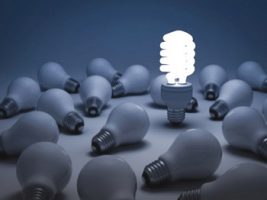Pakistan is facing the worst energy crisis that has affected all segments of society. The gap between electricity demand and supply is widening with every passing day. Electricity demand touched the record of 20058 MW in last August in the country whereas total installed capacity for power generation is 21021 MW out of which 18987 MW is dependable capacity.
But presently dependable capacity is about 13920 due to lack of water releases by IRSA to dams owing to canal closure. Pakistan Electric Power Company (PEPCO)/NTDCL has the responsibility of electricity distribution to a total of 19.3 million consumers across the country. Ministry of Water and Power and PEPCO/NTDCL has chalked out a strategy to launch power generation projects with local and foreign collaboration to meet electricity demand. Hydel, apart from Nuclear, Coal, Solar Energy, Thermal and IPPs are the major sources of power generation in Pakistan.
Presently, Hydel power plays an important part in load management. Thermal and other renewable energy sources are generating electricity in sufficient quantity but due to different reasons like non-availability of gas and furnace oil, canal closure and technical problems the supply and demand gap has widened which has resulted in 10-12 hours of load management in rural and urban areas of the country. According to energy experts the electricity demand is rising by 8-10 percent per annum.
If this tendency continues, the electricity demand would rise phenomenally to 36,000 MW by the year 2015, 54,000 MW by 2020 and 119,000 MW by the year 2030. Hence, it is the need of the hour to take pragmatic measures not only by increasing power generation capacity but also reduction of demand through energy conservation. The change of attitudes and a change of life styles is needed at the national level to conserve electricity which will help in reducing the present run-way demand. Energy conservation is the only short term measure which can fill the gap between demand and supply.
Energy Conservation- How To. . .
We can save a lot of electricity through energy conservation which must be taken immediately to cope with the shortage of electricity
a. All unnecessary lights need to be switched off and especially while leaving the house.
b. Don’t use electricity unnecessarily during peak hours and make maximum usage of sunlight.
c. Don’t put electronic appliances on standby mode once not required.
d. Install UPS of good quality which, will help to save 20-30 per cent electricity.
e. Washing Machines, Microwaves, Iron, Heater and Geysers should not be used during 6 pm to 9 pm. (Peak hours)
f. Replace all incandescent bulbs and tube lights with energy savers (CFLs).
g. Replace all insufficient irrigation/ water supply motors and pumps with efficient equipment.
h. Use good quality copper wire in houses, shops, offices and factories etc it wills stop leakages and wastage of electricity.
i. Public awareness campaigns need to be run through electronic and print media to educate the masses. Reduction of lights up to 50 per cent in President and Prime Minister`s secretariat and houses of federal ministers, governors, chief ministers, all provincial ministers and government offices will be of great help in the programme of energy conservation.
The Govt needs to take strict measures to enforce energy conservation steps in true letter and spirit so that the energy discipline is enhanced among the consumers through awareness campaigns. As the energy experts say, “a mega watt saved is always better than a megawatt produced”.







